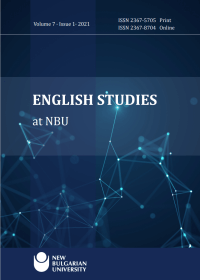Margaret Atwood’s “Oryx and Crake” as a Critique of Technological Utopianism
Margaret Atwood’s “Oryx and Crake” as a Critique of Technological Utopianism
Author(s): Murat KabakSubject(s): Social Sciences, Language and Literature Studies, Education, Foreign languages learning, Essay|Book Review |Scientific Life, Higher Education , Cultural Essay, Translation Studies
Published by: Нов български университет
Summary/Abstract: While there are major works tracing the themes of belonging and longing for home in contemporary fiction, there is no current study adequately addressing the connection between dystopian novel and nostalgia. This paper aims to illustrate how the Canadian writer Margaret Atwood uses nostalgia as a framework to level a critique against technological utopianism in her dystopian novel Oryx and Crake (2003). The first novel in Atwood’s “Madd Addam Trilogy” problematizes utopian thought by focusing on the tension between two utopian projects: the elimination of all suffering and the perfection of human beings by discarding their weaknesses. Despite the claims of scientific objectivity and environmentalism, the novel exposes the religious and human-centered origins of Crake’s technological utopian project. Atwood’s Oryx and Crake is an ambiguous work of science fiction that combines utopian and dystopian elements into its narrative to criticize utopian thought.
Journal: English Studies at NBU
- Issue Year: 7/2021
- Issue No: 1
- Page Range: 37-50
- Page Count: 14
- Language: English

